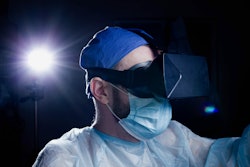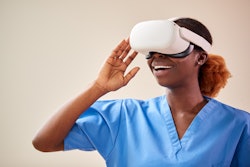The New York University (NYU) College of Dentistry is leveraging virtual reality (VR) to help future dentists fine-tune their skills, including administering anesthetic injections, according to an NYU news story.
VR allows students to practice giving injections repeatedly before they start having to give them to patients. In the past, dental students have learned how to give injections by practicing on other students, which left many wrought with fear and anxiety.
"As dentists, we have to get these skills right -- you cannot practice dentistry without anesthetics," Dr. Marci Levine, a clinical associate professor of oral and maxillofacial surgery who has led the implementation of VR training at the university, said in the story. "That's why we're so focused on students being both competent and confident."
Levine was inspired to create the program based on her colleagues' work in the university's pediatric dentistry department and its medical school. Levine and her colleagues transformed a clinic at NYU Dentistry into a simulated dental office replete with a mock patient sitting in a dental chair who offers a detailed view of the anatomy of the mouth.
Using a VR headset and hand controllers, students act out a simulated interaction, including setting up the equipment, interacting with the patient, and injecting them. The system provides real-time feedback to the student.
NYU dental students are introduced to anesthesia during their second year. After classroom education, they receive additional one-on-one training in the VR lab. Third-year students are required to check out one of the college's 60 VR units to practice at home before giving actual injections to patients.
"Having that mental map in your mind that you see in the VR really helps -- you can apply it clinically," Angela Jang, a third-year dental student, said in the article.
Levine and her dental school colleagues continue to adjust the system to account for issues like students who are left-handed and real-world situations like children's mouths. They are further expanding simulations to include procedures such as tooth extractions.
"I would love to see VR become part of mainstream health care education," Levine added.



















